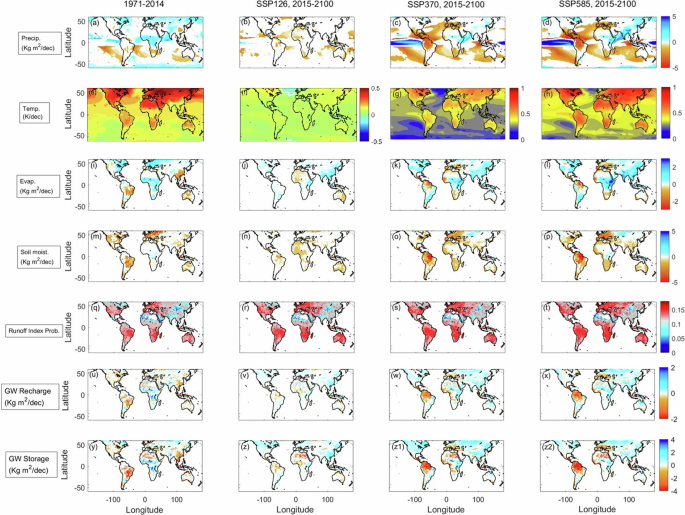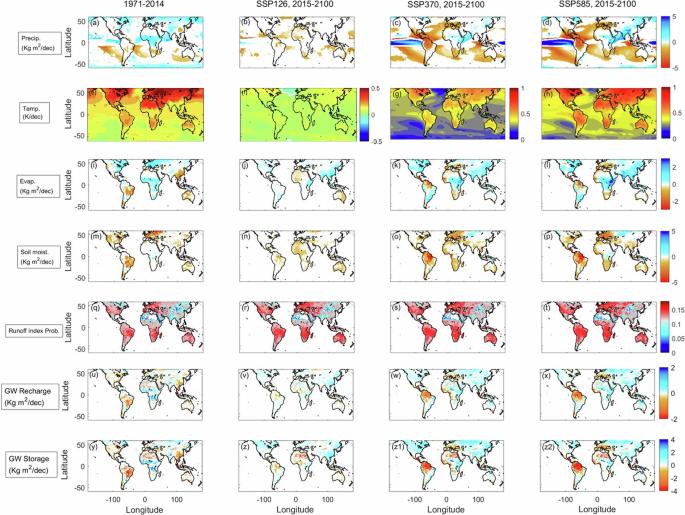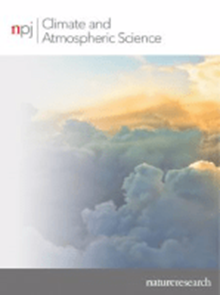Faster dieback of rainforests altering tropical carbon sinks under climate change
IF 8.5
1区 地球科学
Q1 METEOROLOGY & ATMOSPHERIC SCIENCES
引用次数: 0
Abstract
Carbon sinks in the tropical rainforests are restricting the global warming to attain unprecedented heights. However, deforestation and climate change is switching them to a net carbon source at some of the deforested patches. Using machine learning algorithm we predict that more than 50% of the tropical rainforests will undergo rapid “Savannisation”/transformation by the end of 21st century under high emission scenarios. Climate change projects ‘El Niño-like’ warming condition, which decreases precipitation in the rainforests and favors atmospheric dryness. In Central Amazonia vegetation degradation saturates the carbon sink and more than 25% of the rainforests will transform into a net carbon source due to increase in soil microbial respiration. This transition will accelerate if Eastern Pacific/Global temperature warms beyond 1.5◦K/2.3◦K (by 2050’s) and will undergo a steeper transit by ~2075 (2.45◦K/3.8◦K warming). This alteration will exacerbate global warming and has consequences for policies that are intended to stabilize Earth’s climate.


雨林枯死速度加快改变气候变化下的热带碳汇
热带雨林中的碳汇正在限制全球变暖达到前所未有的高度。然而,森林砍伐和气候变化正在使它们在一些被砍伐的地区变成净碳源。我们利用机器学习算法预测,在高排放情况下,到 21 世纪末,50% 以上的热带雨林将迅速 "野化"/转型。气候变化预计会出现 "厄尔尼诺 "式的气候变暖,这将减少热带雨林的降水量,有利于大气干燥。在亚马逊中部,植被退化使碳汇饱和,由于土壤微生物呼吸作用的增加,超过 25% 的雨林将转变为净碳源。如果东太平洋/全球气温升高超过 1.5◦K/2.3◦K(2050 年代),这一转变将加速,到 2075 年左右(2.45◦K/3.8◦K 升温),这一转变将更加剧烈。这一变化将加剧全球变暖,并对旨在稳定地球气候的政策产生影响。
本文章由计算机程序翻译,如有差异,请以英文原文为准。
求助全文
约1分钟内获得全文
求助全文
来源期刊

npj Climate and Atmospheric Science
Earth and Planetary Sciences-Atmospheric Science
CiteScore
8.80
自引率
3.30%
发文量
87
审稿时长
21 weeks
期刊介绍:
npj Climate and Atmospheric Science is an open-access journal encompassing the relevant physical, chemical, and biological aspects of atmospheric and climate science. The journal places particular emphasis on regional studies that unveil new insights into specific localities, including examinations of local atmospheric composition, such as aerosols.
The range of topics covered by the journal includes climate dynamics, climate variability, weather and climate prediction, climate change, ocean dynamics, weather extremes, air pollution, atmospheric chemistry (including aerosols), the hydrological cycle, and atmosphere–ocean and atmosphere–land interactions. The journal welcomes studies employing a diverse array of methods, including numerical and statistical modeling, the development and application of in situ observational techniques, remote sensing, and the development or evaluation of new reanalyses.
 求助内容:
求助内容: 应助结果提醒方式:
应助结果提醒方式:


